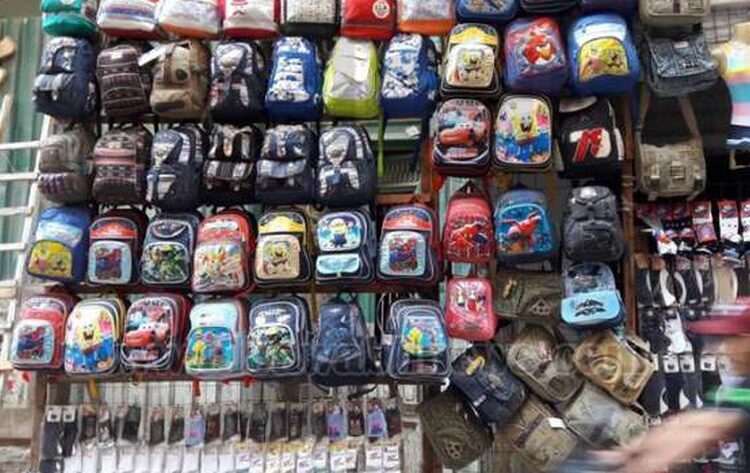Ashraf Ahmed, a street vendor in Dokki, Giza, sells backpacks. He is discontent.
“I am fed up with waiting for the low wage every evening which doesn’t satisfy basic needs,” he said.
“My education stopped at preparatory stage due to financial problems and since then I’ve been trying to earn a living,” Ahmed told the Egyptian Mail, the weekly edition of The Egyptian Gazette. So, he resolved to set up his own business. However, the biggest stumbling block is funding.
“I’ve spent years working for others, so running my own business and not having a boss breathing down my neck would be ideal. I took up selling backpacks in front of a busy metro station,” Ahmed said.
He obtained his first stock of bags on credit, thanks to his contacts and networks after many years working in this business.
“We street vendors are harassed by the traffic police. There are no legal protection. We have tried many times to become legit, but so far no response.”
Selling goods in the streets is illegal. No taxes or rent are paid. However, some have no choice as they cannot afford to rent a shop with overheads.
It is well known that a large portion of the nation’s work force rely on the ‘shadow’ economy to earn a living, which deprives the government of potential tax revenues to fund public services.
The informal economy means unfair competition for registered, tax-paying businesses.
Deputy Governor of the Central Bank of Egypt’s (CBE) Gamal Negm said that the informal sector accounted for about 45 per cent of gross domestic product (GDP).
The World Bank suggests that the best way to stimulate legalisation of the shadow economy is not to decrease the cost of formal sector, but increase the benefits of joining the formal economy, to which end the government has launched initiatives for small and medium sized business.
Minister of Trade and Industry Nevein Gamea said that the Medium, Small and Micro Enterprise Development Agency funded 87,700 small and micro projects in the first half of 2021 for LE 2.8 billion, which created 146,500 jobs.






Discussion about this post